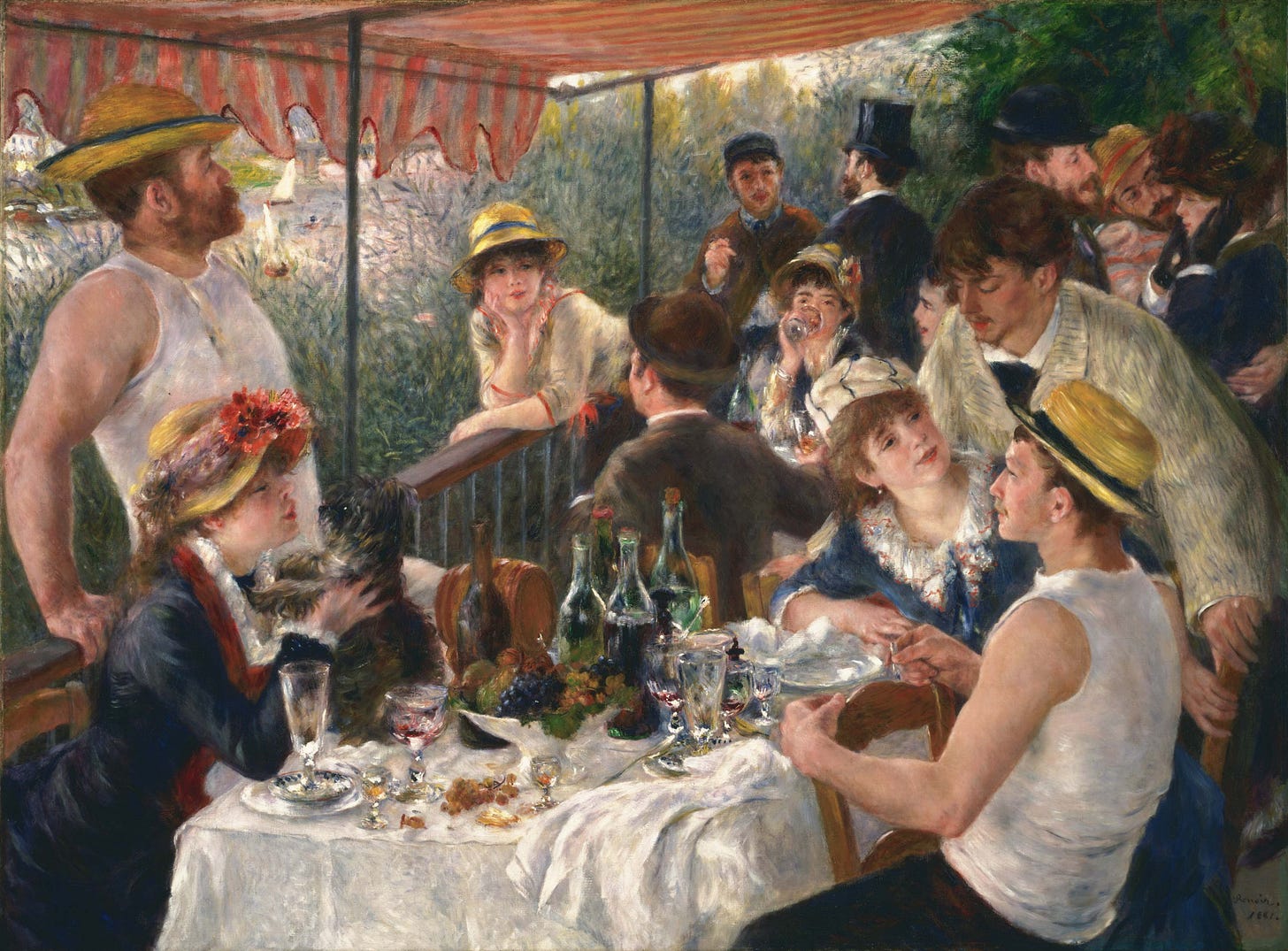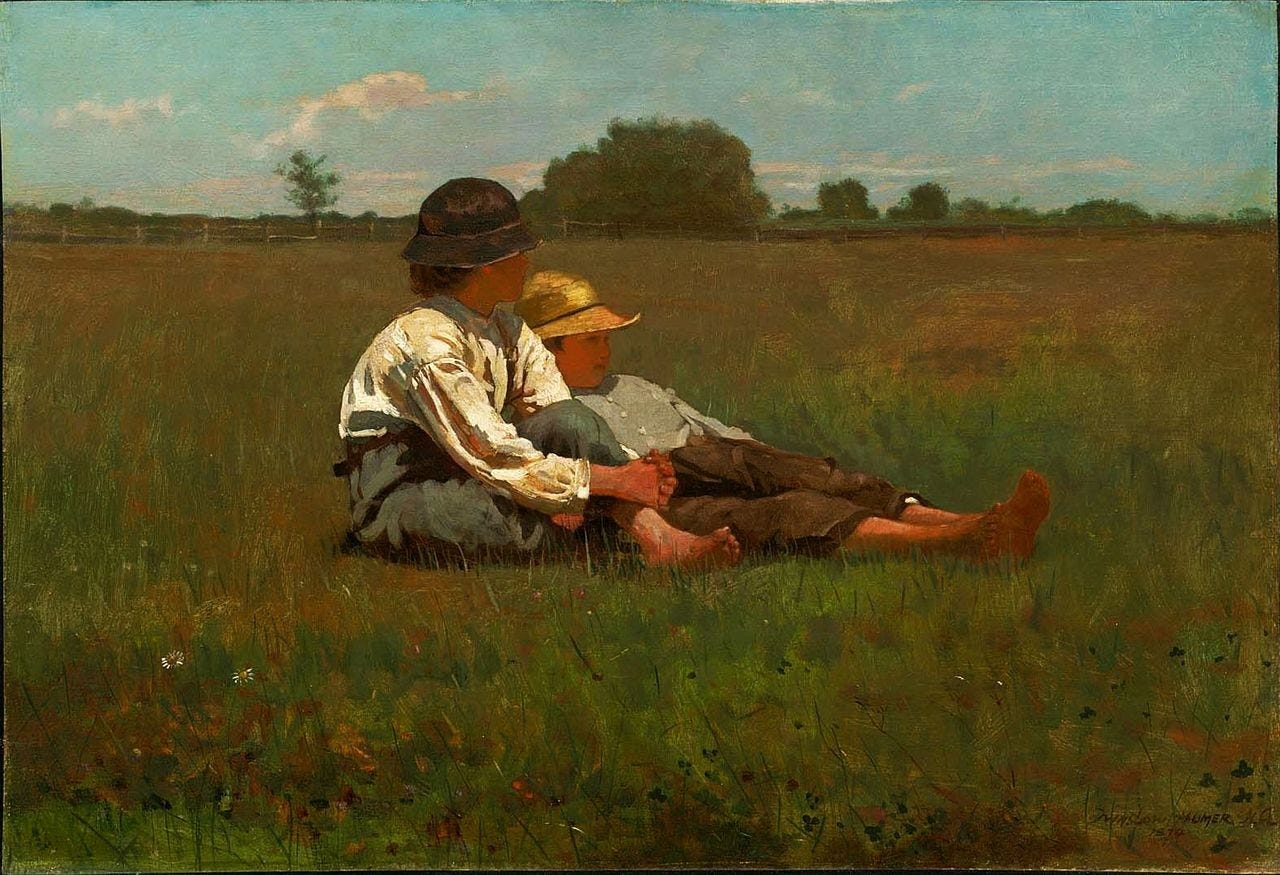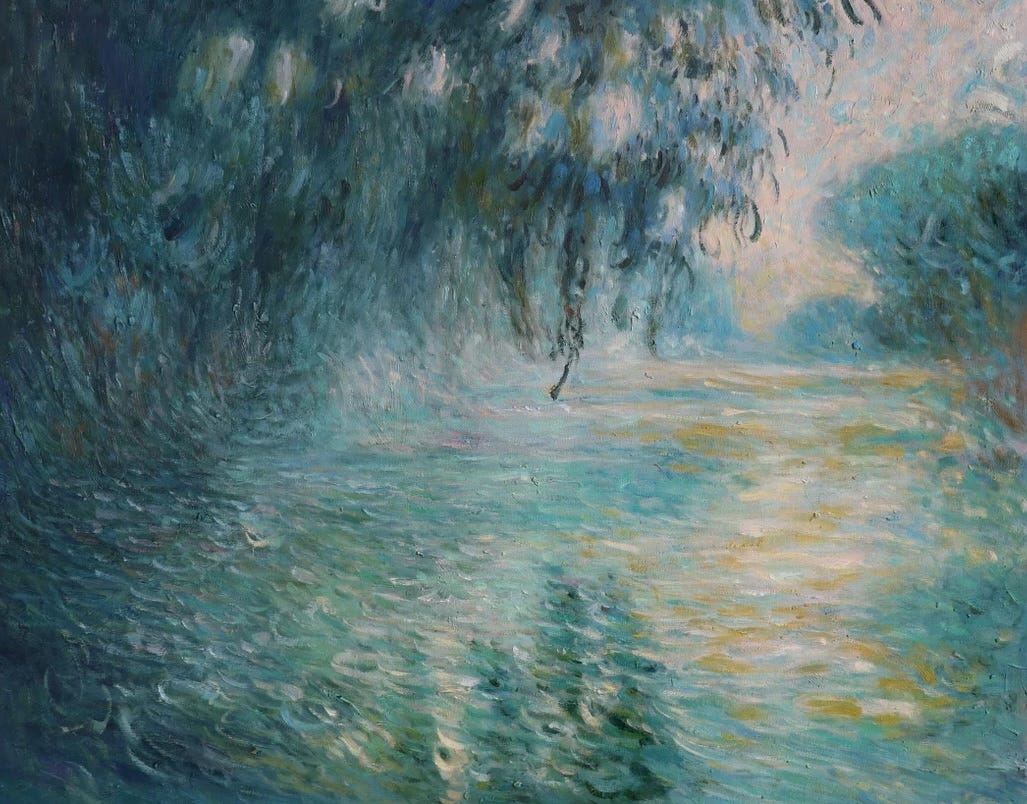“If there is a sin against life, it consists perhaps not so much in despairing of life as in hoping for another life and eluding the grandeur of this one.”
Albert Camus
For the longest time, I’ve had a love-hate relationship with the idea of “cheerful despair” - the balancing act between acknowledging life’s inherent difficulties and embracing it with open arms.
Here’s the concept in a nutshell:
“The brute facts of life are bleak: suffering, misunderstanding, loneliness, death. But that's no reason to be glum; indeed, the dark backdrop makes our celebration of what is good all the more important.”
“By keeping the darkness of life always in mind, we can sharpen our appreciation for whatever stands out against it. We can make the most of the constrained - but real - opportunities we have.”1
It’s Stoic in thought and Buddhist in feel. I find myself reaching for it when things are hard (“Oh, right - life is suffering”) and tossing it aside when things are bright (“No, not now - life is tremendous!”).
I’ve been somewhere in-between lately, and it’s a useful space, because in that middle ground there’s room for nuance.
The first thing I’ll say is this: the candle is worth the game.
While I admire them in other ways, those sages in the Himalayas don’t have partners to flirt with, families to care for, friendships to nourish, or creative visions to chase and set in motion. Their enlightenment may be pristine, but it’s also empty of the richness that makes life full.
Despite its challenges, life is a gift, and failing to see that isn’t a sign of deeper wisdom - it’s a lack of appreciation.
Our best thought partner here is Albert Camus, because he saw the darkness clearer than most - and yet, he still wrote with reverence about laughter, kissing, dancing, and sunshine. Perhaps no quote captures his philosophy better than this one:
“In the midst of winter, I found there was, within me, an invincible summer. And that makes me happy. For it says that no matter how hard the world pushes against me, within me, there’s something stronger - something better, pushing right back.”
I adore peace of mind - perhaps too much! - but I wouldn’t trade the messiness of love, the tangled beauty of human connection, or the thrill of pursuit for a life of uninterrupted calm.
To live fully is to invite trouble - but it’s also to touch something real.
On the Acropolis, Tod Papageorge 1983
Luncheon of the Boating Party, Auguste Renoir 1881
The next thing to consider is: “What choice do I have?” And from there, to move forward through the process of elimination.
Kurt Vonnegut is our guide for this one:
“Be soft. Don’t let the world make you hard. Don’t let pain make you hate. Don’t let the bitterness steal your sweetness.”
If life is sometimes unforgiving - if suffering, misunderstanding, and loss are inevitable - then we must decide how to respond. And I can’t imagine a future where I’m better off for choosing to be less tender, less loving, and less alive to humanity. I’ve done it before - “lost my music” - and it hollowed me out.
We don’t talk about it enough, but warmth needs safeguarding.
Cheerful despair means carrying on with our kindness intact, even when the world gives us every reason to close it off. It means resisting the temptation to turn bitter when things “get ugly” and understanding that softness and strength aren’t enemies - they’re allies.
Familiar, Alex Crétey Systermans 2009
Boys in a Pasture, Winslow Homer 1874
Finally, if cheerful despair has anything to teach us, it’s this: the real source of our suffering isn’t “the brute facts of life” - it’s our resistance to them. We spend so much energy rejecting reality, wishing things were different, and denying the simple truth of our human predicament.
The second we recognize that the struggle we’ve been treating as “difficult” is actually impossible - the perfect relationship, the perfect family, the perfect career path, the perfect anything - something within us unclenches. We relax and enter the sacred state that Sasha Chapin calls “playing in the ruins.”
“It’s equivalent to that moment when, caught in a rainstorm without an umbrella, you finally abandon your futile efforts to stay dry, and accept getting soaked to the skin. Very well, then: this is how things are.”2
Saying “Okay, so be it” is one of the most liberating feelings in the world - and also one of the most empowering. Once we stop resisting and start making peace with how little is in our control - that’s when the magic happens, and we can get on with living.
Better yet, if we can learn to smile at what we once thought we didn’t have the stomach for, resilience rises up with an unexpected buoyancy, and we begin to see opportunities all around us.
“My formula for greatness in a human being is amor fati: that one wants nothing to be different, not forward, not backward, not in all eternity. Not merely to bear what is necessary, still less conceal it… but to love it.”3
To love it.
Not just to endure, not just to push through - but to say yes to all of it. To hold out our arms, let the rain soak through, and welcome life exactly as it is.
Pittsburgh, PA, Sage Sohier 2009
Morning on the Seine in the Rain, Claude Monet 1897
Thank you for reading! If today’s note added a little light to your world, please let me know by tapping the 💛 or sharing it with a friend. Small moments of insight are gifts, and change gathers momentum when ideas travel together.
Cheerful Despair, The School of Life
Meditations for Mortals, Oliver Burkeman
“Love of Fate,” Friedrich Nietzsche












needed this today 💛